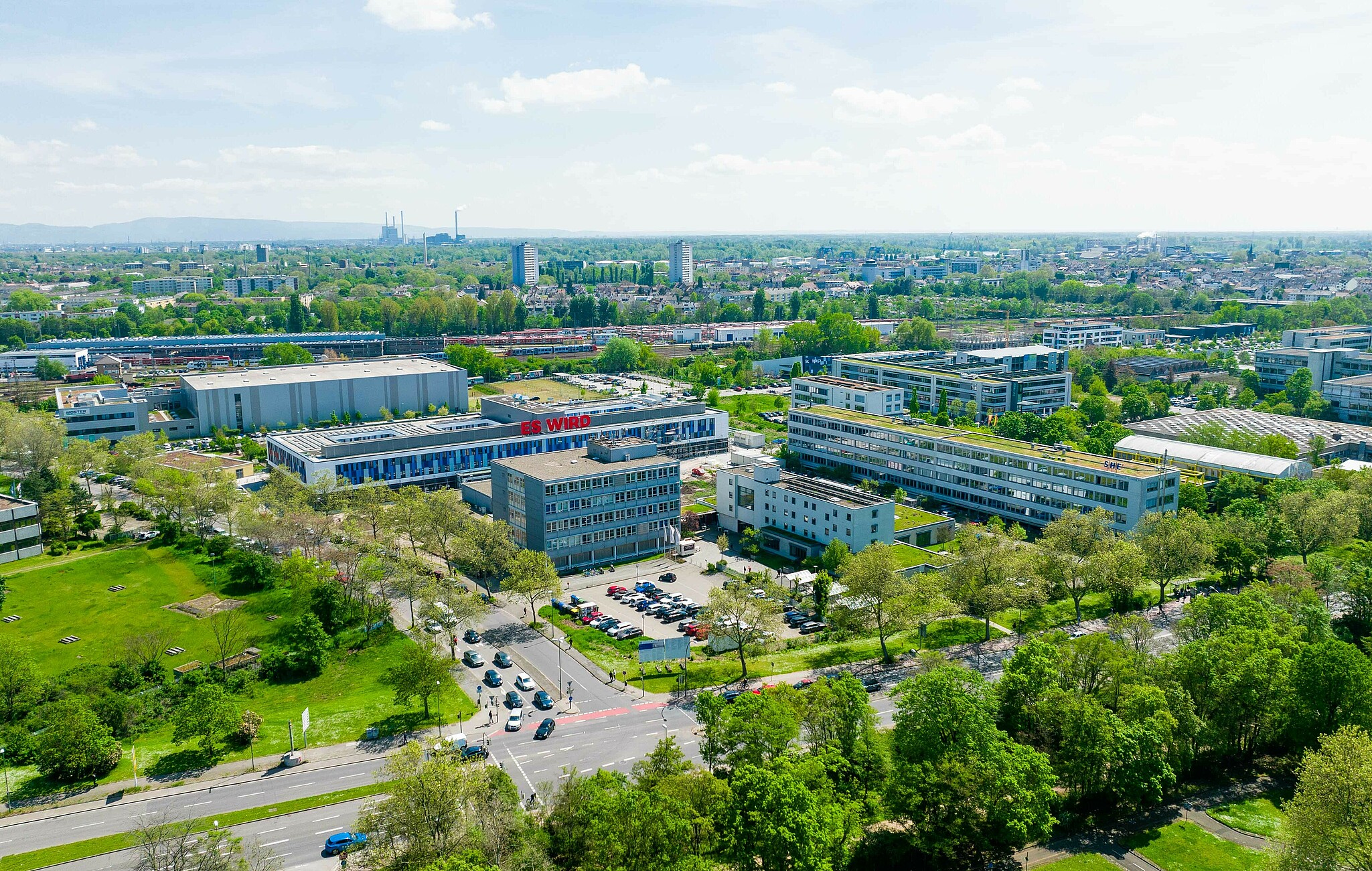Students on the "Health Economics in Practice (GiP)" degree programs on an excursion to Hamburg to visit the UKE's Smart Hospital and DAK-Gesundheit's digital director
At the Smart Hospital of the University Medical Center Hamburg-Eppendorf (UKE) and the statutory health insurance company DAK-Gesundheit, the topic of digitalization is at the top of the agenda. Students on the elective "Innovation Management and Digitalization in Health Sciences" on the Bachelor's degree program "Health Economics in Practice" were able to see this for themselves as part of their on-site excursion in the 2019/2020 winter semester.
While many hospitals still work with paper files and fax machines, the UKE was the first university hospital in Europe to introduce digital patient files for the entire hospital in 2011. The team led by Dr. Gunda Ohm, Head of Strategic Development at the UKE, presented the key topics in strategic corporate development. The group led by Prof. Dr. Jasmina Stoebel, who organized the excursions, gained in-depth insights into the structure of care contracts and outpatient networks as well as telemedical applications (e.g. tele-radiology and StroCare) and digital networking (e.g. with outpatient practices or with patients) at the UKE. Prof. Dr. Augustin, Head of the Institute for Health Services Research in Dermatology and the Nursing Professions, presented the group with impressive images of telemedical support in wound care for patients. This made it possible to correct misdiagnoses and prevent unnecessary treatment errors such as amputations. Finally, the students were given a tour of the digital hospital pharmacy. The pharmacy team headed by Dr Michael Baehr has radically changed the supply of medication in an impressive way, digitized workflows, optimized processes and introduced a closed digital medication process, which is described in technical jargon as "Closed Loop of Medication Administration, CLMA". This innovative medication process significantly improves drug therapy safety as well as communication between pharmacists and doctors.
Prof. Dr. Herbert Rebscher, former CEO of DAK-Gesundheit, opened the visit to the health insurance company's digital director with his presentation on digitalization in healthcare and presented topics such as big data, precision medicine and artificial intelligence in a very differentiated and vivid way. The group was then given an insight into DAK-Gesundheit's digitalization strategy. DAK-Digital's vision includes both the creation of digital foundations in its own organization and the development and provision of innovative digital solutions for patients and service providers in the healthcare sector. Finally, the discussion round was opened, in which the students made their valuable contributions on the opportunities and challenges of digitization for insured persons and health insurance companies.
"Both the UKE and DAK-Gesundheit are certainly a benchmark in terms of digitalization," said Prof. Dr. Jasmina Stoebel, assessing both players in the healthcare sector. She adds: "It is important for the students to experience how theory is put into practice, how opportunities are seized and hurdles overcome. We were able to experience that here today. In addition to digital sovereignty and data awareness, role models like this are crucial in the healthcare sector because they show students that digitalization is possible and necessary in the healthcare sector, despite many concerns. This will enable them to help shape and promote this digital transformation as critical advocates in the future."




